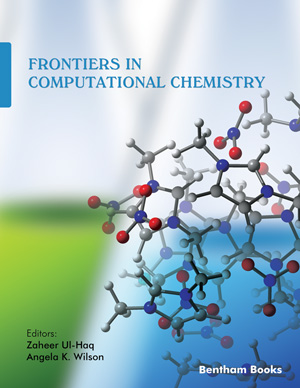Abstract
Increasing evidence has accumulated to suggest that vitamin D may reduce the risk of cancer through its biologically active metabolite, 1α,25(OH)2D3, which inhibits proliferation and angiogenesis, induces differentiation and apoptosis, and regulates many other cellular functions. Thus, it is plausible to assume that rapid clearance of 1α,25(OH)2D3 by highly expressed CYP24A1 could interrupt the normal physiology of cells and might be one cause of cancer initiation and progression. In fact, enhancement of CYP24A1 expression has been reported in literature for many cancers. Based on these findings, CYP24A1-specific inhibitors and vitamin D analogs which are resistant to CYP24A1-dependent catabolism might be useful for cancer treatment. CYP24A1-specific inhibitor VID400, which is an azole compound, markedly enhanced and prolonged the antiproliferative activity of 1α,25(OH)2D3 in the human keratinocytes. Likewise, CYP24A1-resistant analogs such as 2α-(3-hydroxypropoxy)-1α,25(OH)2D3 (O2C3) and its C2-epimer ED-71 (Eldecalcitol), and 19nor- 2α-(3-hydroxypropyl)-1α,25(OH)2D3 (MART-10) showed potent biological effects. Our in vivo studies using rats revealed that MART-10 had a low calcemic effect, which is a suitable property as an anticancer drug. Much lower affinity of MART-10 for vitamin D binding protein (DBP) as compared with 1α,25(OH)2D3 may be related to its more potent cellular activities. Based on these results, we conclude that (1) high affinity for VDR, (2) resistance to CYP24A1-dependent catabolism, (3) low affinity for DBP, and (4) low calcemic effect may be required for designing potent vitamin D analogs for cancer treatment.
Keywords: CYP24A1, vitamin D analogs, cancer therapy.
Anti-Cancer Agents in Medicinal Chemistry
Title:CYP24A1 as a Potential Target for Cancer Therapy
Volume: 14 Issue: 1
Author(s): Toshiyuki Sakaki, Kaori Yasuda, Atsushi Kittaka, Keiko Yamamoto and Tai C. Chen
Affiliation:
Keywords: CYP24A1, vitamin D analogs, cancer therapy.
Abstract: Increasing evidence has accumulated to suggest that vitamin D may reduce the risk of cancer through its biologically active metabolite, 1α,25(OH)2D3, which inhibits proliferation and angiogenesis, induces differentiation and apoptosis, and regulates many other cellular functions. Thus, it is plausible to assume that rapid clearance of 1α,25(OH)2D3 by highly expressed CYP24A1 could interrupt the normal physiology of cells and might be one cause of cancer initiation and progression. In fact, enhancement of CYP24A1 expression has been reported in literature for many cancers. Based on these findings, CYP24A1-specific inhibitors and vitamin D analogs which are resistant to CYP24A1-dependent catabolism might be useful for cancer treatment. CYP24A1-specific inhibitor VID400, which is an azole compound, markedly enhanced and prolonged the antiproliferative activity of 1α,25(OH)2D3 in the human keratinocytes. Likewise, CYP24A1-resistant analogs such as 2α-(3-hydroxypropoxy)-1α,25(OH)2D3 (O2C3) and its C2-epimer ED-71 (Eldecalcitol), and 19nor- 2α-(3-hydroxypropyl)-1α,25(OH)2D3 (MART-10) showed potent biological effects. Our in vivo studies using rats revealed that MART-10 had a low calcemic effect, which is a suitable property as an anticancer drug. Much lower affinity of MART-10 for vitamin D binding protein (DBP) as compared with 1α,25(OH)2D3 may be related to its more potent cellular activities. Based on these results, we conclude that (1) high affinity for VDR, (2) resistance to CYP24A1-dependent catabolism, (3) low affinity for DBP, and (4) low calcemic effect may be required for designing potent vitamin D analogs for cancer treatment.
Export Options
About this article
Cite this article as:
Sakaki Toshiyuki, Yasuda Kaori, Kittaka Atsushi, Yamamoto Keiko and Chen C. Tai, CYP24A1 as a Potential Target for Cancer Therapy, Anti-Cancer Agents in Medicinal Chemistry 2014; 14 (1) . https://dx.doi.org/10.2174/18715206113139990307
| DOI https://dx.doi.org/10.2174/18715206113139990307 |
Print ISSN 1871-5206 |
| Publisher Name Bentham Science Publisher |
Online ISSN 1875-5992 |
Call for Papers in Thematic Issues
Induction of cell death in cancer cells by modulating telomerase activity using small molecule drugs
Telomeres are distinctive but short stretches present at the corners of chromosomes and aid in stabilizing chromosomal makeup. Resynthesis of telomeres supported by the activity of reverse transcriptase ribonucleoprotein complex telomerase. There is no any telomerase activity in human somatic cells, but the stem cells and germ cells undergone telomerase ...read more
Role of natural compounds as anti anti-cancer agents
Cancer is considered the leading cause of worldwide mortality, accounting for nearly 10 million deaths in 2022. Cancer outcome can be improved through an appropriate screening and early detection and through an efficient clinical treatment. Chemotherapy remains an important approach in treatment o f several types of cancers, even though ...read more
Signaling and enzymatic modulators in cancer treatment
Cancer accounts for nearly 10 million deaths in 2022 and is considered the leading cause of worldwide mortality. Cancer outcome can be improved through an appropriate screening and early detection and through an efficient clinical treatment. Chemotherapy, radiotherapy and surgery are the most important approach for the treatment of several ...read more
 103
103
- Author Guidelines
- Graphical Abstracts
- Fabricating and Stating False Information
- Research Misconduct
- Post Publication Discussions and Corrections
- Publishing Ethics and Rectitude
- Increase Visibility of Your Article
- Archiving Policies
- Peer Review Workflow
- Order Your Article Before Print
- Promote Your Article
- Manuscript Transfer Facility
- Editorial Policies
- Allegations from Whistleblowers
Related Articles
-
MicroRNAs and Cancer; an Overview
Current Pharmaceutical Biotechnology Histone Deacetylase Inhibitors: An Attractive Strategy for Cancer Therapy
Current Medicinal Chemistry Recent Advances in the Development of Selective Mcl-1 Inhibitors for the Treatment of Cancer (2017-Present)
Recent Patents on Anti-Cancer Drug Discovery Malignant Mesothelioma Resistance to Apoptosis: Recent Discoveries and their Implication for Effective Therapeutic Strategies
Current Medicinal Chemistry FLT3 Inhibition in Acute Myeloid Leukaemia – Current Knowledge and Future Prospects
Current Cancer Drug Targets GPR55 and its Interaction with Membrane Lipids: Comparison with Other Endocannabinoid-Binding Receptors
Current Medicinal Chemistry Antimicrobial Activity of New 2-Thioxo-benzo[g]quinazolin-4(3H)-one Derivatives
Medicinal Chemistry Cancer and Stem Cells
Current Cancer Therapy Reviews Antineoplastic Chemotherapy Induced QTc Prolongation
Current Drug Safety Targeting Gene Therapy for Prostate Cancer
Current Pharmaceutical Design Glycerophospholipid Synthesis as a Novel Drug Target Against Cancer
Current Molecular Pharmacology Synthesis, Characterization by Means of IR, 1H, 13C - NMR and Biological Investigations on New Diorganotin Carboxylic Acid Derivatives
Letters in Drug Design & Discovery In or Out Stemness: Comparing Growth Factor Signalling in Mouse Embryonic Stem Cells and Primordial Germ Cells
Current Stem Cell Research & Therapy Polysulfated/Sulfonated Compounds for the Development of Drugs at the Crossroad of Viral Infection and Oncogenesis
Current Pharmaceutical Design Serpins for Diagnosis and Therapy in Cancer
Cardiovascular & Hematological Disorders-Drug Targets Determinants of Left Ventricular Hypertrophy
Immunology, Endocrine & Metabolic Agents in Medicinal Chemistry (Discontinued) Post-Translational Modifications of PTEN and their Potential Therapeutic Implications
Current Cancer Drug Targets Eliminating Ovarian Cancer Stem Cells: A Potential Therapeutic Target for Ovarian Cancer Chemoresistance
Current Protein & Peptide Science Determination of 7,12-Dimethylbenz[a]Anthracene in Orally Treated Rats by High-Performance Liquid Chromatography and Transfer Stripping Voltammetry
Combinatorial Chemistry & High Throughput Screening In Vitro Antitumoral Activity of Palladium(II) and Platinum(II) Complexes with O,O'-Dialkyl Esters of Ethylene-bis(S)-Leucine
Letters in Drug Design & Discovery


























